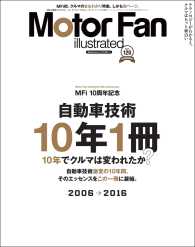Full Description
Arbitration and Mediation In Nineteenth-Century England rounds off Derek Roebuck's series on the history of English arbitration, and is written by his collaborators on the previous volume, English Arbitration and Mediation in the Long Eighteenth Century, Francis Calvert Boorman and Rhiannon Markless. Arbitration remained a vital institution in nineteenth-century England and we investigate how the settlement of disputes changed from the end of the Napoleonic Wars to the Arbitration Act 1889. This was a period of upheaval in the demographics, society and economy of England. The booming population, coupled with urbanisation and the spread of factory production, created newly enriched industrialists, a burgeoning working class and squalid urban conditions. The spread of new technologies such as the railways increased mobility and brought new business organisations and opportunities. England's production and international trade flourished, along with its imperial ambitions.
All of these changes led to new forms of dispute to go with the age-old differences over land and debts, and within families. We explain how arbitration continued to be used and was adapted to suit novel and diverse challenges, including an overloaded legal system, the rise of anonymous credit transactions and an increasingly organised labour movement. We chart the relationship of arbitration to the legal profession and the commercial community, with their differing visions of how arbitration should be structured and regulated. We also describe the expanding use of arbitration as a tool of governance, increasingly included in statutes with both a local and national focus. Finally, we take an international perspective, considering how arbitration was touted as a method to bring peace between nations, but was also deployed in various aspects of the slave trade. Most importantly, we seek to elucidate the varied experiences of both parties, from aristocratic mine-owners to widowed businesswomen, and arbitrators. We show how these arbitrations differed by region and were affected by the gender and class of participants.
Dr Francis Calvert Boorman is a historian of locality and London, as well as arbitration. He is editor of The Victoria History of Middlesex: St Clement Danes, 1660-1900 and has another book forthcoming on the Westminster parish of St George Hanover Square.
Dr Rhiannon Markless is an archival researcher and legal historian. She is author of Gender, Crime and Discretion in Yorkshire, 1735-1775: Decision-Making and the Criminal Justice System.
Francis and Rhiannon are co-authors, with Derek Roebuck, of English Arbitration and Mediation in the Long Eighteenth Century (HOLO Books: The Arbitration Press, 2019).
ISBN 978-1-9196318-4-4








